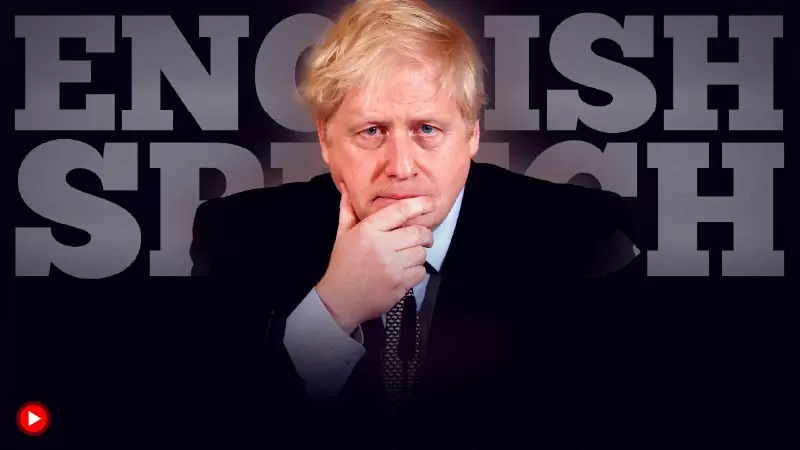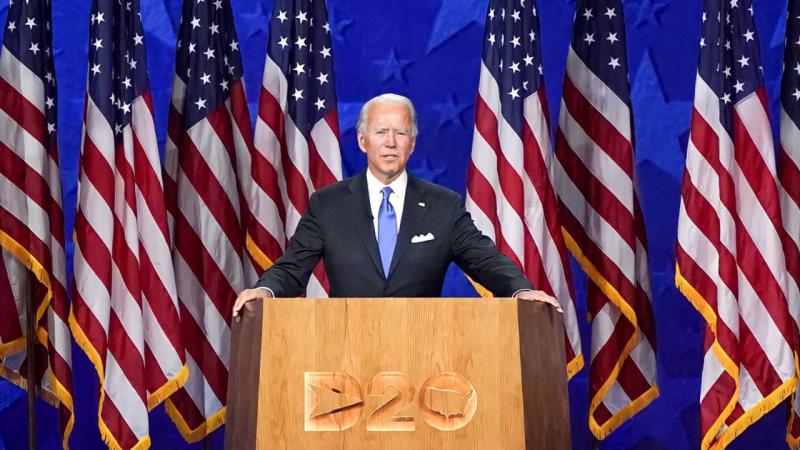Angelina Jolie: Fighting for Equality
Learn English with Angelina Jolie’s speech. In this speech at the 2017 UN Peacekeeping Conference in Vancouver, actress and activist Angelina Jolie highlights the ongoing problem of sexual violence in conflict zones and the continued exploitation of defenseless civilians by peacekeepers. She challenges three myths surrounding the issue and emphasizes the need to hold perpetrators accountable, to increase the number of women deployed in peacekeeping missions, and to address sexual violence as a weapon used to achieve military or political objectives. Angelina Jolie is an American actress, filmmaker, and humanitarian known for her work in both film and activism. She has been a Goodwill Ambassador for the United Nations High Commissioner for Refugees (UNHCR) since 2001 and was appointed as a Special Envoy in 2012.
Download Full
Download available
for Plus Members
🎯 1000+ English files (PDF, MP3, Lessons)
PDF Transcript
Access the full speech in an
easy-to-read PDF format.
Audio Version
Listen and download clear,
high-quality MP3 recordings.
English Lesson
Includes vocabulary
and grammar practice.
Offer ends in:
01
Days
:
15
Hours
:
29
Mins
:
42
Secs
Offer ended.
Download available
for Plus Members
PDF Transcript
Access the full speech in an
easy-to-read PDF format.
Audio Version
Listen and download clear,
high-quality MP3 recordings.
English Lesson
Includes vocabulary
and grammar practice.
Offer ends in:
Offer ended.
Transcript and Audio Here!
English Speeches creates these files FREE & downloadable, so you can learn English and improve your vocabulary!
Angelina Jolie | Quote
“Without pain, there would be no suffering, without suffering we would never learn from our mistakes.” Angelina Jolie
Angelina Jolie | FULL TRANSCRIPT:
Thank you.
Your Excellencies, Ministers, ladies and gentlemen, it is an honor to be here.
I would like to acknowledge the ancestral lands of the First Nations, the 110,000 men and women currently deployed on UN peacekeeping operations, and the families of all of those peacekeepers who have been killed in the line of duty.
And I thank the Canadian government for hosting this event and for their leadership on women, peace and security.
We meet at a time when peace is in short supply, with armed conflict in Myanmar, Syria, Iraq, and Yemen, to name but a few of the worst examples, with over 65 million refugees and displaced people worldwide, and UN peacekeepers deployed on an unprecedented 15 operations.
The protection of civilians has been at the heart of laws of warfare since the Geneva Conventions, which state that in any conflict, the civilian population shall not be the object of attack.
Yet, women and children make up the vast majority of all casualties in armed conflict today.
Laws prohibiting attacks on schools and hospitals are routinely breached, for instance, in Syria.
Laws prohibiting the denial of aid relief to civilians are repeatedly ignored, whether in Rakhine State or in Myanmar today, or in Yemen, where millions of people are facing death from starvation.
And despite being prohibited by law, sexual violence continues to be employed as a tactic of war in 19 countries.
It includes mass rape, gang rape, sexual slavery, and rape as a form of torture, ethnic cleansing, and terrorism.
It has been 68 years since the Geneva Convention Fourth Protocol, which said women shall be especially protected against any attack on their honor, in particular against rape, enforced prostitution, or any form of indecent assault.
It has been 21 years since the UN first promised to address sexual abuse by UN peacekeepers and to increase the number of women deployed in operations.
Yet, the exploitation of defenseless civilians still takes place, and still less than 4 percent of all peacekeepers are women.
It has been 19 years since the Rome Statute of the International Criminal Court stating that mass atrocities, including rape and sexual slavery, would not go unpunished.
And yet, justice for survivors of rape is still the exception.
It has been 17 years since the UN Security Council Resolution 1325 called for an end to the exclusion of women from peace negotiations, for special protection for women and girls against sexual violence, and for an end to impunity.
So we have to ask, how is it, after all these years, all these laws, and all these resolutions, and all the horrors endured, women still have to ask for this most basic of all entitlements, the right to a life free from violence.
Sexual violence is everywhere.
In the industry where I work, in businesses, in universities, in policies, politicians, military across the world, it affects men as well as women.
However, it is recognized by the UN as one of the prime reasons why women remain in a subordinate position in relation to men in parts of the world, and as a critical obstacle to achieving women’s equality and our full human rights.
Ending gender-based violence is therefore a vital issue of social justice in all nations, and confronting its use in its most extreme form as a weapon of war is essential for future peace and security.
I want to address three myths that I believe go to the heart of why these crimes still occur, and what we have to overcome together.
The first myth is that this behavior is sexual.
All too often, these kinds of crimes against women are laughed off and depicted as a minor offense by someone who cannot control themselves, as an illness or some kind of exaggerated sexual need.
A man who mistreats women is abusive.
Only last week, a trial opened in the Democratic Republic of Congo for 46 alleged cases of rape of children by militia fighters who had been told that the blood of virgins would grant them supernatural protection.
Some of the victims were 18 months old.
According to the UN, almost every female Rohingya refugee in the camps in Bangladesh is either a survivor of sexual violence or a witness to multiple instances of sexual assault, rape, or gang rape.
MSF said that half of the patients it has treated for rape are under 18 years old, and one was just 9 years old.
This is rape and assault designed to torture, to terrorize, and to force people to flee.
It has nothing to do with sex.
It has everything to do with abuse of power.
It is criminal behavior.
The second myth is that even when conflict-related sexual violence is clearly understood as a crime, it is treated as a lesser crime, an inevitable aspect of the breakdown of social order, not a central issue for peace negotiations or agreements, and not grave enough to mount prosecutions and imprison those responsible.
But sexual violence is a weapon used to deliberate effect to achieve military or political objectives.
It is cheaper than a bullet.
It has long-lasting consequences that unfold with sickening predictability.
And that is what makes it so cruelly effective.
I would like to ask everyone here to take a moment to consider the following scenario.
Imagine your hometown, the street where you live, a conflict has broken out in your country.
One night, trucks roll in, and your street is surrounded and blocked off.
Men with guns pour out of those trucks and start breaking down doors.
They go from house to house in your street, and in the course of one night, they rape every woman or girl they find, and they do so in front of their families.
Now think how you and your family would be affected that night, that day, for the months and years to come, that impact on all of you, the emotional pain and trauma, the stigma, the shame, the physical and mental illness, how broken you would feel that you were unable to stop this from happening to your family members, and how bitter you would feel at being told months or years later that you have to move on and forget because there is now a peace agreement and justice for your families is less important.
This is the reality for millions of families today.
It is happening today, day in, day out, and more often than not, we know about it.
It’s on our television screens and our newspapers.
Why then, why then does nothing really change?
And this brings me to my third myth, which is that even if we accept that sexual violence has nothing to do with sex, and understand that it is a crime, that it is used as a weapon, with many people, they will still believe that it’s just simply not possible, that’s how it goes.
How could we possibly prevent sexual violence in the extreme conditions of war?
It is hard, yes, but it is not impossible.
We have the laws, the institutions, the expertise in gathering evidence.
We are able to identify perpetrators and those responsible.
What is missing?
The political will.
This brings me to the role of the military.
There is nothing worse than when someone in uniform is harming the very civilians they are sent to protect.
Now, I’d like to believe that no one is angrier than you when one of your own betrays their uniform and your values in that way.
In the last few years, I have seen a dramatic change in the willingness of military leaders to address the taboos around these issues and to take action.
In Kenya earlier this year, I met peacekeepers from around the world receiving training, many of them for the first time, in how to identify and respond to sexual violence and to interact appropriately with survivors on UN peacekeeping missions.
Canada, the UK, and Bangladesh have announced today the Senior Military Chiefs Network, promising to work with other senior military officers to increase the number of women in their militaries, to change training to include gender and women peace and security, to deploy more women in operational roles, and to appoint full-time gender advisors.
And many of the countries represented at this conference have also made new and very important pledges.
So I thank them, and I thank you for these commitments.
I hope they will be just the beginning.
In this work, we will not only strengthen our societies and improve peacekeeping, but you will play your part in showing that no perpetrator is above the law and no survivor is beneath it.
And I am here, determined to do anything I can to work alongside all of you.
Thank you for all you’ve done today.
Thank you for your efforts.
And I look forward to our work.
Angelina Jolie






